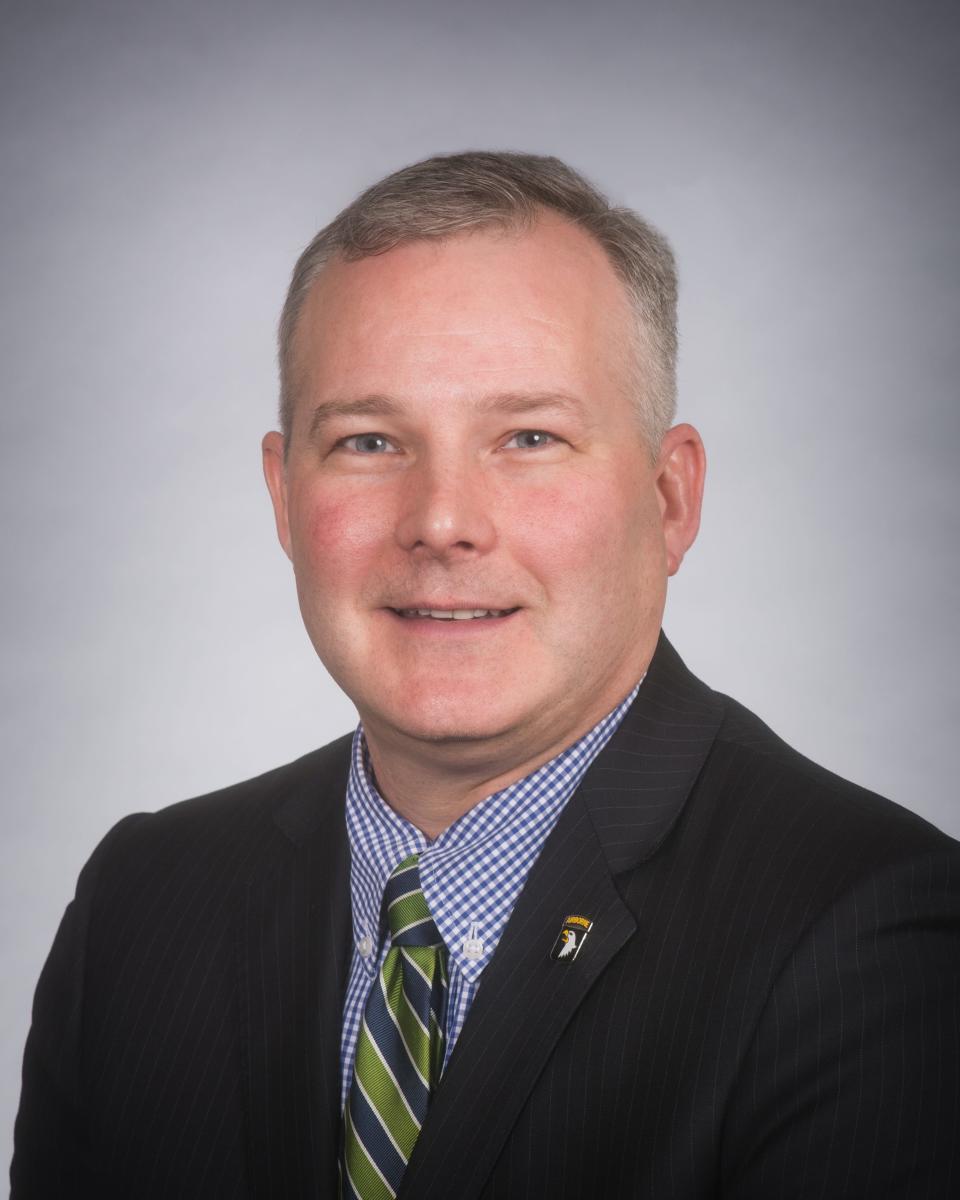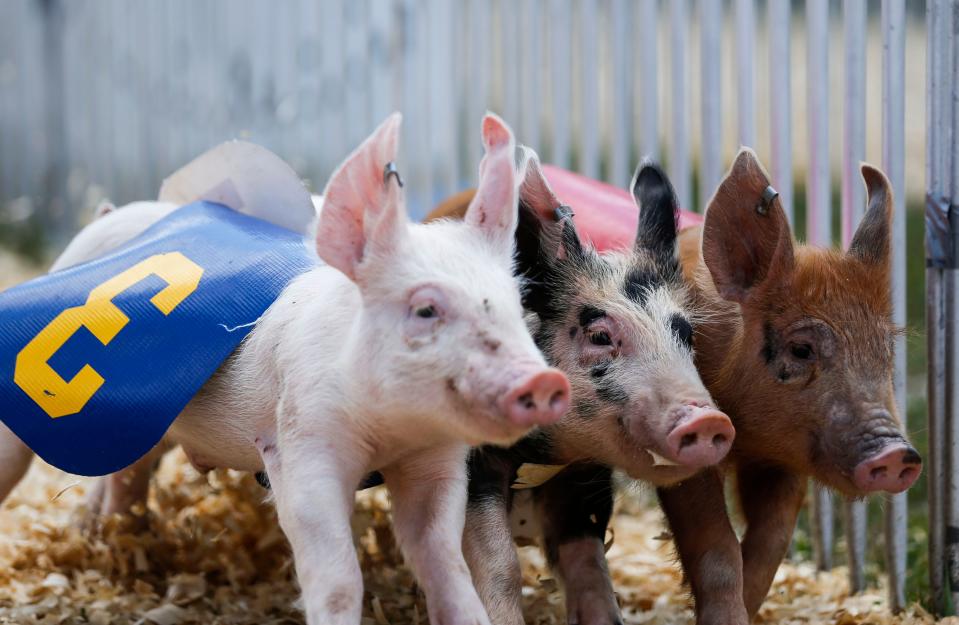Missouri legislators will try again to restrict foreign farmland ownership next session
After failing to do so in the past legislative session, Missouri lawmakers are again preparing to file legislation aimed at restricting foreign farmland ownership.
State Senator and 2024 gubernatorial candidate Bill Eigel, R-Weldon Spring, plans to revive failed legislation seeking a total ban on all foreign farmland ownership.
Framed as a constitutional amendment, the proposed legislation would require divestment of Missouri farmland currently owned by foreign entities within two years, while prohibiting new purchases.
“Missouri farmland should be owned by Missourians, or at least Americans,” Eigel said. “I am the only candidate for Governor calling for a complete ban on foreign ownership of Missouri ground and a plan to get back what has been taken.”

As written, foreign owners of Missouri farmland would be forced to sell their property within 24 months of the passage of the bill. Any violations would be reported to the Missouri Attorney General, and entities that fail to divest would have their agricultural property seized. Eigel plans to file the legislation Dec. 1, the earliest date for pre-filing bills for the 2024 legislative session.
“I envision a bold, conservative Missouri that isn’t owned by foreign countries or entities—not China, not the World Economic Forum, not Qatar,” Eigel said. “It’s a Missouri that is owned by the everyday, hardworking Missourians that love our land and have been cultivating it for generations in the Show-Me State.”
Eigel’s plan mirrors one that was put in place in Arkansas last week. On Oct. 17, Arkansas Attorney General Tim Griffin, who formerly served as the state's lieutenant governor, ordered Northrup King Seed Co. to divest itself of 160 acres in Craighead County within two years.
Northrup King Seed Co. is a subsidiary of Syngenta Seeds LLC, which can trace its ownership back to China National Chemical Company (ChemChina), a state-owned enterprise.

This is Griffin’s first exercise of the new authority granted under Act 636, a law passed this year by the Arkansas General Assembly that bans certain foreign entities from owning farmland in the state.
Act 636 prohibits farmland ownership by companies from countries subject to the federal International Traffic in Arms Regulations, which includes Afghanistan, Belarus, Cuba, Iran, Iraq, Libya, N. Korea, Syria, Vietnam, Myanmar, China, Haiti, Liberia, Rwanda, Somalia, Sudan, Democratic Republic of the Congo, or any UN Security Council arms embargoed country.
Griffin’s office also has the authority to fine companies that don’t declare foreign ownership.
“Additionally, as the owner failed to file in a timely manner documents required by Act 1046 of 2021 with the Arkansas Secretary of Agriculture, I am also imposing a civil penalty of $280,000, which represents 25% of the reported fair market value of the property, the maximum civil penalty allowed by law,” Griffin wrote in a release.
More: Politician or the people's lawyer? How the role of Missouri Attorney General has evolved
Restricting foreign land ownership a national trend, but amount of land owned is unclear
This wave of ownership restrictions is part of a larger nationwide trend. Prior to 2023, there were only 14 states that prohibited or restricted foreign ownership of agricultural property by law. However, there are currently 24 states with similar laws on the book this year.
Missouri is among those states, as there is currently a 1% cap on the percentage of farmland that can be owned by foreign entities.
Until 2013, no foreign countries were allowed to purchase Missouri farmland, but legislators opted to raise the bar around the same time that Smithfield Foods eyed the purchase of property in Northern Missouri.
Following the approval of the legislation, which required overriding the veto of then-Gov. Jay Nixon, Chinese-based Shuanghui International Holdings, now called WH Group, bought U.S.-based Smithfield Foods and purchased about 40,000 acres of state farmland.

Smithfield Foods is the world’s largest pork producer. It operates 132 company-owned farms along with 109 contract farms, including a pork facility in Milan, a town of 1,800 people in Northern Missouri.
According to a national security think tank called the Center for Strategic and International Studies, WH Group, parent company of Smithfield Foods, owns about 42,000 acres in Missouri and 146,000 acres nationally.
There is some debate about the amount of farmland actually owned by foreign entities in Missouri, which is due to the way that information is collected.
The U.S. Department of Agriculture gathers information on farmland ownership, but this is largely through volunteered reporting of ownership. Nonprofit newsroom Investigate Midwest found that over 3.1 million acres of U.S. farmland had no owner listed.
Furthermore, spot checks were conducted of the existing data, which revealed incorrect ownership listings for many properties in the USDA report.
According to the USDA report, which has an unknown degree of accuracy, Missouri agricultural land is 1.1% foreign owned, exceeding the legal limit of 1% established in 2013.

However, a March 2021 report from the Missouri Department of Agriculture showed that only about 0.36% of the state’s farmland was owned by foreign entities. Only 0.16% of that counts toward the 1% cap as land used for agriculture.
The remaining 0.2% either is not used as farmland, owned by a U.S.-based non-citizen, purchased before 1978 or amounts to less than five acres, which are all exemptions allowed by state law.
Missouri has 27.8 million acres of farmland, of which about 100,000 acres are foreign owned, based on the report from the Missouri Department of Agriculture.
According to state data, China owns about 40% of the foreign-owned farmland in Missouri, with 42,596 acres. New Zealand owns 16,271 acres. There is no land in Missouri owned by Russia, Venezuela, Iran or North Korea, all countries targeted for restrictions by state legislators. USDA reports show Italy also owns land in Missouri, but records could be inaccurate.
More: Community around Pomme de Terre Lake rallies against beef packers' plan to dump wastewater
Missouri legislators have tried, and failed, to restrict foreign land ownership
This isn’t the first attempt in Missouri to restrict foreign farm ownership, and it almost certainly won’t be the last. Along with Eigel’s expected legislation, Rep. Mike Haffner, R-Pleasant Hill, also plans to introduce new legislation on the topic next session.
According to reporting by Missourinet, Haffner’s bill differs from Eigel’s in the respect that it only wants to limit some countries from purchasing Missouri land, but his restrictions apply to all state land, not just property used for agricultural purposes.
Haffner, who co-chairs the Missouri Legislature’s Joint Committee on Agriculture, introduced a similar bill during the 2023 legislative session, which failed to pass.
Haffner feels that restricting some countries from purchasing Missouri land is both a matter of national security and food security to retain domestic ownership of state agricultural property.
Restricting foreign farmland ownership is one of the few things that members of both of Republican and Democratic parties in the Missouri General Assembly agree upon.
In fact, many Democrats were sounding the alarm before Republicans took up the issue. Sen. Doug Beck, D-Affton, has urged lawmakers for stricter limits on foreign farmland ownership for at least five years.

Rep. Crystal Quade, who is a 2024 Democratic gubernatorial candidate and Minority Floor Leader in the Missouri House, introduced a bill aimed at limiting foreign farmland ownership during the 2023 legislative session.
The House combined four bills to make House Bill 903, sponsored by Haffner. This legislation would have dropped the state cap on foreign farmland ownership from 1% to 0.5% of total farmland in the state.
Under the bill, China, Russia, Iran, North Korea and Venezuela would have been prohibited from owning any farmland in the state. Additionally, any other foreign entities interested in Missouri land faced requirements to report acquisitions, transfers or sale to the Missouri Secretary of State and Attorney General.
While the bill passed the House, it was stymied in the Senate by filibusters and deep GOP party division, like many other pieces of legislation. In 2023, the Missouri General Assembly only passed 43 bills, marking the least productive full session in the past two decades.
However, the Senate was interested in investigating foreign land ownership in Missouri, with many senators sponsoring similar legislation, including Eigel.
After the sighting of a Chinese spy balloon floating over the state in February, Senate President Pro Tem Caleb Rowden called for the formation of the Senate Select Committee on the Protection of Missouri Assets From Foreign Adversaries. From this came a joint resolution prohibiting all foreign agricultural land purchases, which failed to pass.
While groups such as Missouri Farm Bureau and the Missouri Rural Crisis Center spoke in support of the bill last session, other organizations vocally opposed it, including the Missouri Chamber of Commerce, Missouri Pork Association and Missouri Realtors.
“We want to make sure we do everything we can to encourage investment in our state and also help support the businesses that are already in our state if they want to grow or expand in the future,” said Phillip Arnzen, director of legislative affairs for the Missouri Chamber, in a January release.
Restricting foreign farmland ownership to China in particular is the focus of legislation introduced by Sen. Josh Hawley in March. His “This Land is Our Land” act would specifically ban corporations and individuals associated with the Chinese Communist Party from owning any U.S. farmland.
“No Chinese corporation or individual associated with the CCP should be permitted to own American farmland,” said Hawley in a release. “It undermines the integrity of our nation’s food supply chain, it presents national security threats when the land is in close proximity to military installations, and it hurts American farmers.”
This article originally appeared on Springfield News-Leader: Foreign farmland ownership likely topic in 2024 MO legislative session

